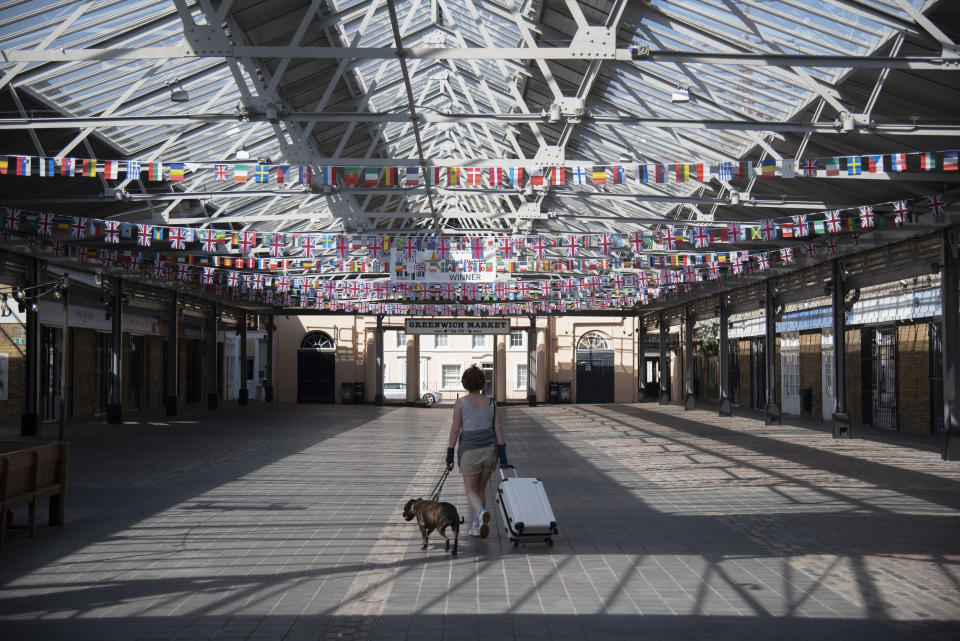Coronavirus: UK wages still below 2008 credit crisis levels when COVID-19 hit

Real wages in Britain were still lower than before the 2008 economic crisis even before the coronavirus struck, official figures show.
The average employee’s pay in February was worth less than just before the global financial crisis over a decade ago, when rising prices are taken into account.
The Office for National Statistics (ONS) figures published on Tuesday do not show how pay has fared since the economy began to seize up under the weight of the coronavirus and lockdown.
But separate surveys suggest many households have seen their incomes slide in recent weeks, with work drying up, job losses mounting and pay slashed for millions of furloughed workers.
The ONS figures show average pay packets before tax came in at £511 a week in February.
But the official statistics body also compared its value over time using constant 2015 prices, as typically rising average prices erode the actual value of wages. This showed average pay in real terms is £2 lower than its peak before the credit crunch in March 2008.
Read more: UK unemployment rose just before coronavirus crisis hit
Frances O’Grady, general secretary of the Trades Union Congress (TUC), said it showed Britain was “on the brink of another economic crisis before we have recovered from the last one.”
She said Britain’s workers had suffered the longest pay squeeze in centuries, with official figures showing a feeble decade of growth, productivity and earnings since the last crisis.
She called for pay to be increased for staff putting their health at risk by continuing to work, and for higher and quicker support through universal credit for those incomes have suffered or vanished. “Our frontline heroes desperately need a pay rise.”
Watch the latest videos from Yahoo UK

 Yahoo Finance
Yahoo Finance 